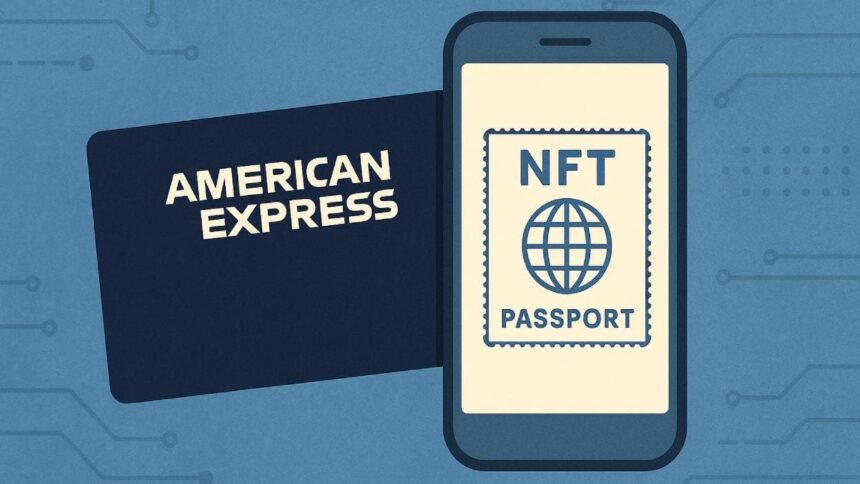American Express has launched a new initiative named Amex Passport, designed to enhance the travel experience for its U.S. cardholders through NFT-based digital stamps on the Ethereum Layer 2 Base network. This feature allows cardholders to collect NFT stamps as unique digital memorabilia every time they make qualifying purchases while traveling abroad.
These stamps, categorized as non-fungible tokens (NFTs), are structured as ERC-721 tokens and include essential details such as the country visited, a brief description of the experience, and the date of travel. However, they are designed to prioritize privacy, with no personal data being linked to the stamps. As of now, over 20,000 stamps have been issued, and the program also allows retroactive addition for eligible trips taken within the past two years.
To collect a stamp, cardholders must make an in-person purchase using their linked U.S. American Express card in one of 130 qualifying countries or regions. This can be done through physical transactions or via digital wallets like Apple Pay and Google Pay. Amex Passport aims to fill the gap left by the declining use of physical passport stamps, offering a modern twist that resonates with those who wish to preserve their travel memories.
Luke Gebb, Executive Vice President of Amex Digital Labs, commented on the initiative, highlighting the growing consumer appetite for digital mementos. A recent survey conducted by American Express indicated that a significant majority of travelers—73%—are seeking more digital ways to celebrate their journeys, while over half miss the experience of receiving physical passport stamps.
Unlike many traditional NFTs, these digital stamps are not marketed as financial assets. They are specifically aimed at enhancing user sentiment rather than speculation, avoiding the typical associations tied to cryptocurrencies. The user interface intentionally omits references to them as NFTs, demonstrating a focus on enhancing the travel experience rather than driving financial interests.
Moreover, each stamp collected is private, securely recorded on the blockchain, ensuring that no personal trip details are disclosed to the public. The feature incurs no additional fees, further enhancing its appeal to cardholders.
This development aligns with a broader trend in the travel and tourism sector, where companies are shifting towards utility-driven digital collectibles. Recent examples include Lufthansa’s NFT program and South Korea’s Jeju Island planning an NFT tourism resident card in 2025. Even federal entities in the U.S. are exploring blockchain, with the Department of Commerce indicating plans to publish economic data on this technology.
American Express is also deepening its connections in the cryptocurrency landscape, having partnered with Coinbase to launch a Bitcoin rewards card expected to offer significant cash-back incentives.
The Amex Passport initiative showcases how established financial players can leverage blockchain technology for practical and sentimental purposes, moving beyond the speculative nature often associated with digital assets. By fostering a more personal connection to travel experiences, American Express aims to transform how cardholders celebrate their adventures, allowing them to build a digital narrative of their journey rather than merely a financial portfolio.







